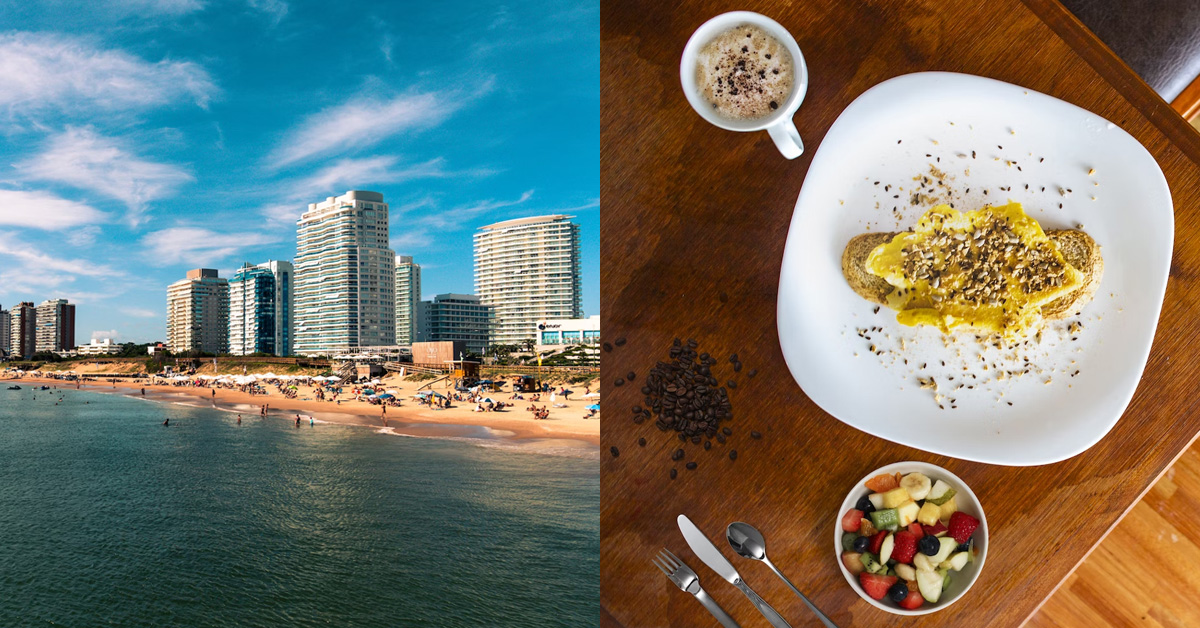Uruguayan cuisine is a unique blend of European, African, and indigenous influences, resulting in a diverse and flavorful culinary experience. Located in South America, Uruguay is known for its grass-fed beef, fresh seafood, and traditional dishes such as chivito and asado.
The country’s cuisine is heavily influenced by its neighboring countries, Argentina and Brazil, but also has its own distinct flavors and cooking techniques. From hearty stews to sweet desserts, Uruguayan food offers a range of dishes that are sure to satisfy any palate.
Uruguayan cuisine halal or not?
Is Uruguayan food halal?
It depends on the specific dish and ingredients used. Uruguay is a predominantly Catholic country, but there is a small Muslim community. Some traditional Uruguayan dishes, such as chivito (a sandwich with beef, ham, cheese, and vegetables), may contain non-halal ingredients.
However, there are also many dishes that are made with halal ingredients, such as seafood and vegetables. It is important to check the ingredients and preparation methods before consuming any food to ensure it is halal.
What kind of food do Uruguayan eat?
Uruguayans eat a variety of foods, but some of the most popular dishes include:
- Asado: A traditional barbecue dish made with beef, pork, or lamb.
- Chivito: A sandwich made with beef, ham, cheese, lettuce, tomato, and mayonnaise.
- Milanesa: Breaded and fried meat, usually beef or chicken.
- Empanadas: Small pastries filled with meat, cheese, or vegetables.
- Dulce de leche: A sweet caramel-like spread made from milk.
- Mate: A traditional drink made from steeping dried leaves of the yerba mate plant in hot water.
- Pascualina: A savory pie filled with spinach, cheese, and eggs.
- Torta frita: A fried dough pastry often eaten for breakfast.
- Fainá: A thin, crispy flatbread made from chickpea flour.
- Arroz con leche: A sweet rice pudding made with milk and sugar.
How can you tell if the food is halal in Uruguay?
In Uruguay, halal food is not widely available, and there are no specific regulations or certifications for halal food. However, some restaurants and food establishments may offer halal options, especially in areas with a significant Muslim population.
To determine if the food is halal, you can ask the restaurant or food establishment if they have halal options or if their meat is sourced from halal-certified suppliers. You can also look for halal certification logos or symbols on the packaging or menu.
You can consult with local Muslim organizations or communities for recommendations on where to find halal food in Uruguay.
Is it hard to find halal food in Uruguay?
It can be challenging to find halal food in Uruguay. The majority of the population in Uruguay is Catholic, and there is a small Muslim community.
Therefore, there are limited options for halal food in the country. However, some restaurants and grocery stores in Montevideo, the capital city, offer halal food options.
It is recommended to do some research and ask locals for recommendations to find halal food in Uruguay.
Is Uruguayan food healthy?
Uruguayan cuisine is known for its meat-based dishes, such as asado (barbecue), chivito (a sandwich with beef, ham, cheese, and vegetables), and milanesa (breaded meat). These dishes can be high in calories and saturated fat.
However, Uruguayan cuisine also includes a variety of fresh fruits and vegetables, seafood, and grains, which can be part of a healthy diet. It ultimately depends on the individual’s food choices and portion sizes.
What is Uruguayan food similar to?
Uruguayan food is similar to Argentinean and Brazilian cuisine, as they share many cultural and culinary influences.
It also has similarities to other Latin American cuisines, such as Mexican and Peruvian, but with its own unique twist.
Steps to find halal food in Uruguay
Here are some general steps to find halal food in Uruguay:
- Research online: Look for halal restaurants or grocery stores in Uruguay through online directories or search engines. You can also check social media platforms for recommendations from other Muslims living in Uruguay.
- Contact local Islamic organizations: Reach out to local Islamic organizations or mosques in Uruguay to ask for recommendations on where to find halal food.
- Check food labels: When shopping for groceries, look for food products that have halal certification labels. These labels indicate that the food has been prepared according to Islamic dietary laws.
- Ask restaurant staff: When dining out, ask the restaurant staff if they have any halal options on their menu. If they don’t, ask if they can prepare a halal meal for you.
- Bring your own food: If you’re unable to find halal food options, consider bringing your own food from home or preparing your own meals. This way, you can ensure that the food you’re eating is halal.

